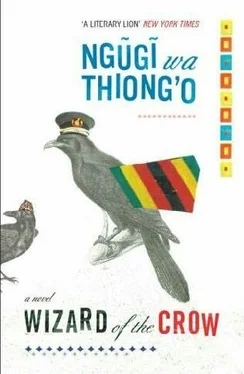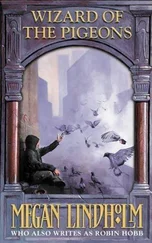His conversation with his mates came back to haunt him. Daughters of Eve. Black Daughters of Black Eve. They are going to know that I am the man, Tajirika swore to himself. They would forever rue the day they started playing radical politics in his office.
During these bouts of self-bolstering bravado, he would feel a sudden resurgence of hope quickly followed by deep despair at the thought of the absent Vinjinia and the renegade Nyawlra.
That Machokali had not responded to any of his many telephone messages increased his worry. Even when he dialed Machokali’s cell phone, it was the chauffeur who picked up only to tell him that he would pass on the message to the minister. To make matters worse, officer Wonderful Tumbo had not shown his face again.
He tried to figure out how he could extricate himself from the mess he found himself in. He wanted to save his skin and those of his children from disaster. He even thought of calling a press conference to publicly disassociate himself and his family from the activities of Vinjinia and Nyawlra, reaffirming his loyalty to the Ruler, his government, and the plans for Marching to Heaven. But how could he do a thing like that without first alerting his friend Machokali? After turning this idea over in his mind, he decided to put it off. He would wait a few days, but if after the third day he still failed to connect with his friend the minister or get fresh information from his friend Officer Tumbo, he would go ahead and denounce his wife and Nyawlra in public. He had to save his investments by any means necessary, and after this resolution he felt slightly better.
He started drafting the press statement. He stumbled over words and phrases, but he persevered and for a time the task kept his mind busy. Dear Gentlemen of the Press. I have called you here today to tell you and, in telling you, tell the world that I would give up my life for the Ruler. As I am so loyal, how could anyone imagine that I could possibly have anything to do with a worker, a simple secretary, or a simple housewife, subverting the Mightiest of Governments… etc.
Three days passed and still there was no call from the minister or visit from Officer Tumbo. Tajirika stared at his unfinished press statement and felt he had arrived at a cul-de-sac: how could he denounce women accountable to him whose whereabouts he did not knowr What if his statement was turned against him, claims made that he had probably murdered them and buried their bodies in the backyard and was only pretending that they had disappeared?
Dispirited, weighed down by having no clear way out, he simply clung to his glass of whiskey for support and comfort.
It was then that he heard the screech of a car coming to a stop outside. He stood up, and as he was about to peer through the window the telephone rang. For a second he was torn between the car and the phone. He went for the phone. He was glad: it was Machokali, and he was certain that a conversation with his friend the minister would clear things up or clear the way for his press conference.
It was obvious that Machokali did not want to talk on the phone, and within seconds they had agreed on a time and a place to meet.
As he put the phone down, he heard the sound of the car leaving. He rushed to the door.
Vinjinia entered.
“Where in heavens have you been?” Tajirika asked.
“In the secret grip of the State,” Vinjinia said lifelessly.
“What are you talking about?” Tajirika asked, unnerved more by the confirmation than by his previous uncertainty.
State and secret often go together. The secrets are known to only a few called secretaries in some countries and ministers in others, but both names reflect their roles as servants of state secrets. The Great Dictator of Aburlria alias the Ruler of the Free Republic of Aburiria did not trust anybody to keep his secrets. Even those ministers reputed to be close to him because they were the last to see him at night and first to see him in the morning were never sure about their fate, or whether by sunset or sunrise they would still be holding their jobs.
There was chilling precedence for this.
How many times had the dictator lifted a few, singing their praises, taking them with him everywhere for every ceremony, and just when they started believing that they were indeed “the beloved of the father” the dictator would suddenly pull the magic carpet from under them. Having fallen, the ex-beloved, bruised and broken, would crawl on all fours, crying out for mercy and forgiveness, this for a day, a week, a month, a year, or several years. Then suddenly, out of the blue, the dictator would hear the man’s cry and send political fixers to assuage his misery. Arise, you may walk again, the dictator would say to the saved, and the man, so grateful, would forever wax lyrical about the dictator’s boundless generosity, especially when blessed with a directorship of this or that marketing board, chairmanship of this or that wildlife society, or even another ministerial post.
The dictator’s reputation for making minister plot against minister, region rise against region, and community fight against community was now a matter of legend. He would side with one warring faction, which would rejoice at its alliance with power only to wake up one morning to find that the dictator had sided with its adversary, for a time, at least, before changing sides again or even goading altogether another faction into the fray. The dictator, seemingly above it all, looking good as he appealed for peace and understanding, would be embraced by all the feuding parties as a Solomonic prince of peace.
Though aware of this, the well-to-do, the self-appointed leaders of communities, members of Parliament, and especially cabinet ministers never ceased competing to sit on the right side of the father. Yet the winner always lived in terror of being displaced by a rival wilier in the ways of sycophancy. The problem was that the Ruler never let anyone know what was expected of him to retain his place of honor. Even humility and self-abnegation, however abject, were not enough to prevent one’s downfall. For in his long ascendance to ultimate authority, the Ruler had himself been the nonpareil master of humility and self-abnegation.
As to how he rose to the mountaintop of power, many stories are told. According to one version, he emerges in history as a champion of an unquestioning humility before power. He was first widely known during the colonial times for seeming meek and mild-mannered to every white man with whom he came into contact. All the white settlers’ and missionary reports about him concurred that he was a good African, and later, “our man.” Whether in school, the government bureaucracy, or the army, his servile bearing facilitated his climb up the ladder of success. He had failed to attain his high school diploma, but nonetheless he ended up an assistant headmaster of an African school on a settler’s farm in western Aburlria. Seeing that full head-mastership was the most that he could ever attain in education, he quit the profession and went into the colonial army, becoming a self-proclaimed Military Officer of Information. His main job was helping to produce leaflets in praise of the heroic deeds of the colonial army against the nationalist insurgents. He rose to the rank of corporal, and there he would probably have remained had the nationalist insurgents not forced the colonialist mother country to rethink her strategy. When it was clear to the white settlers that independence for
Aburiria was inevitable, the Ruler-to-be was once again appointed their man in the coming rearrangement of things. He was a natural choice, and it took careful planning that spanned several years. First they shrouded him in a mantle of nationalism. Even though the future Excellency was then just a journalist, he found himself climbing the military ranks from corporal to sergeant to sergeant-major all in a matter of weeks. It was then that the future Excellency produced a carefully worded statement completely unlike any of the leaflets he had hitherto produced. For now he called for improvements in the working conditions of the black people in the army; he vowed that otherwise he would quit his military post and forfeit promised honors to struggle for the rights of his people. A week later, he resigned and announced his intention to form his own nationalist political party.
Читать дальше












